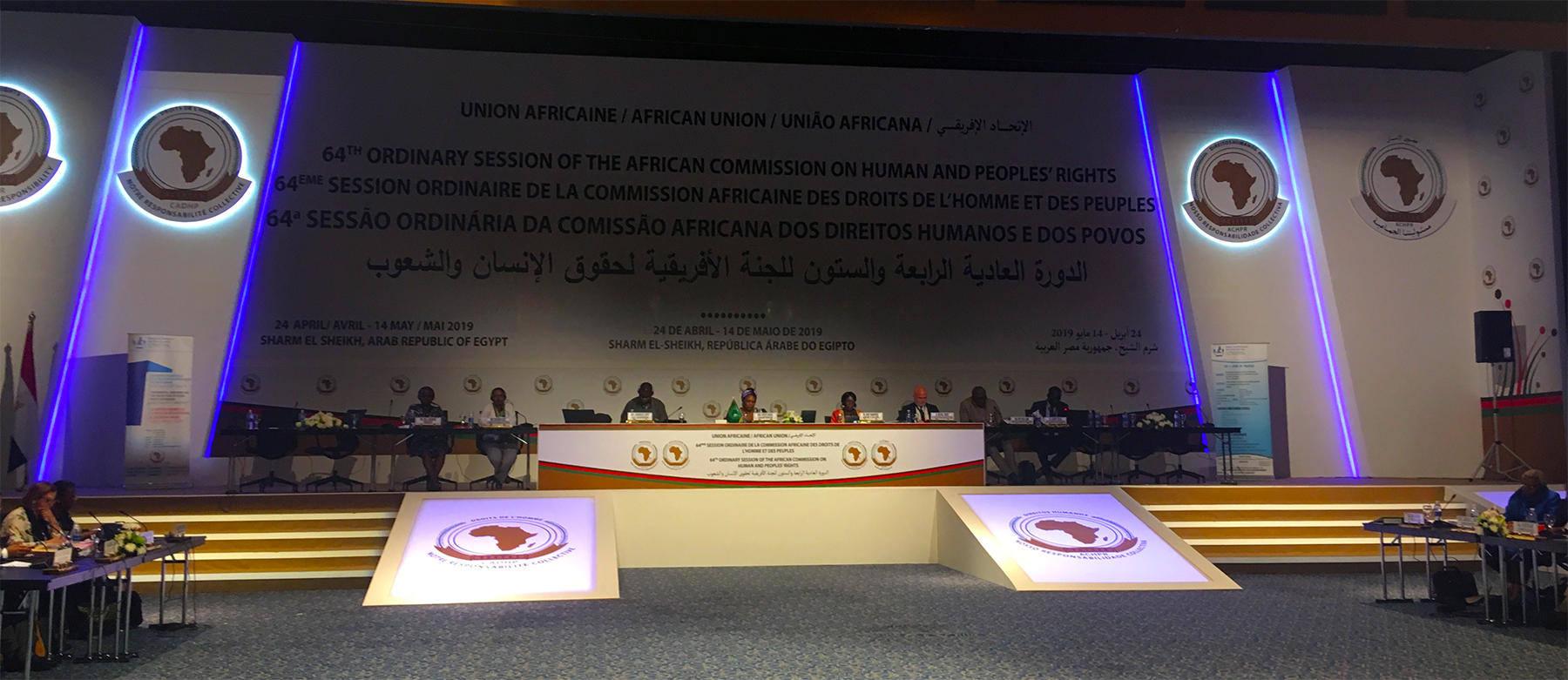


Oral Statement
24 April 2019 – 14 May 2019, Sharm El-Sheikh, Egypt
Humanists International welcomes the opportunity to address the African Commission at its 64th session.
Last year, whilst we gathered in Mauritania to strengthen the protection of human rights on the continent, right outside the doors of our assembly our hosting government adopted an amendment to its criminal code making the death penalty mandatory for any person found guilty of apostasy or blasphemy, with no possibility for the convicted to repent or appeal.
We commend the Commission’s chairperson for having, at the time, promptly called for the government to review the legislation. Yet, the particularly severe nature of anti-apostasy and blasphemy legislation in a number of African states, we believe, urges a more systematic approach from the Commission.
Various national legislations across the continent criminalise blasphemy and apostasy. Sudan penalises apostasy with death, whilst restrictions on the free expression of opinions that might offend religious sensibilities or religious symbols are in place in countries such as Ethiopia and Egypt. Other countries, for example Somalia, criminalise offences against one specific religion, in this case Islam.
The freedom to express beliefs contrary to religion or to reject religion is a core component of the human right to freedom of religion or belief. No argument built around cultural or religious specificity can be advanced by any state to legitimise their interference with the enjoyment of this right. You cannot use the presumed articles of a religion to deny someone their freedom of religion or belief.
Notably, measures taken against blasphemy and apostasy disproportionately impact humanists and atheists in their expression of secular values, critique of the politicisation of religion and support for democracy, the rule of law and human rights.
“The right to worship is the right of everyone, and even the right not to worship is something that we cannot intervene in.” These are the words of President Al-Sisi at the World Youth Forum in November last year.
We appreciate the clarity of this statement and hope that he will lead his nation based on this principle. It is overdue. For years now here in Egypt, the non-religious have faced enormous hostility, prejudice, and blasphemy arrests. Human Rights Watch has previously noted that, although the constitution ostensibly guarantees freedom of belief and expression, atheists are one of Egypt’s least-protected minorities.
Egypt is party to human rights treaties, including the International Covenant on Civil and Political Rights and the African Charter on Human and Peoples’ Rights, which require its government to respect and protect freedom of religion or belief and freedom of expression, without any discrimination. Whilst thanking Egypt for their hospitality at this session, we want to take this opportunity to call on its government to be true to its constitution and to the sentiments expressed by the President last year, and respect and protect all its citizens whatever they believe.
More broadly, in order to begin systematic work towards the abolition of blasphemy and apostasy laws, Humanists International calls on the African Commission to:
During the opening ceremony of this Session, His Excellency Mr Omar Marawan, celebrated the values of tolerance and diversity in making Egypt what it is today.
Tolerance and diversity mean embracing the rights and freedoms of those who think differently, those who question the status quo, dogma and authority.
The right to free thought, religion, conscience and expression together protect personal choices and personal convictions; they are central to respecting who we are now as individuals and who we may become, in Egypt, in Africa and across the world.